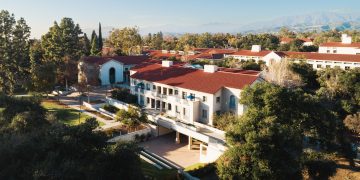Federal Work-Study Program: Everything You Need to Know
College costs a pretty penny, so it makes sense that work and school go hand-in-hand. While many choose to work at a private franchise or company, 600,000 students nationwide participate in the Federal Work-Study (FWS) Program to help them through college. And it’s a pretty good gig: the federal government offers roughly $1 billion to qualifying students.
If you’re looking for a way to get financial aid and work experience, you should consider FWS. But you can’t just take a job and then get money from the government. You have to know a lot about FWS before you apply. So what is the Federal Work-Study Program? What are the work-study requirements? What do you have to do to get a position you want?
Answer these questions and you can find the perfect way to pay for school. Here is your quick guide to all things FWS.
The Basics of Federal Work-Study (FWS)
FWS is a financial aid program for college students in the United States. A student agrees to take a part-time job, and the federal government offers them a subsidy to pay for some of their tuition.
This program takes many forms, being open to students both undergraduate and graduate, full time or part time. Positions can be either on or off campus, and they are flexible enough for students to take other jobs to support themselves.
In most cases, students receive the federal minimum wage through their work, though the pay can vary depending on the position’s skill level or responsibilities. Higher wages are also available if a student has significant financial need and/or does not have student loans or scholarships.
Zully Rodriguez, Associate Director of Student Financial Aid at the University of Hartford, reminds us that there are a couple of limitations to FWS. It’s important to note that students in FWS cannot work as many hours as they want. The federal budget is capped, so work hours are limited. For the same reason, the number of job positions offered is limited as well: “Institutions do have limited funding, so always inquire at the financial aid office at your school if you want to participate in this program but don’t see it listed on your award letter,” says Rodriguez. You may be able to ask for this extra source of income just in case they have available positions left over.
Federal Work-Study Program Eligibility
Interested in work-study? FWS candidates must meet three criteria in order to qualify:
- Attend a Participating School: Though FWS is a national program, not all schools have it as an option. Most not-for-profit colleges and universities do participate, but it’s important to double-check regardless.
- Complete the FAFSA: In order to be considered for FWS, you must complete the Free Application for Federal Student Aid (FAFSA). This is the government’s way of keeping record of and verifying the students who may work in the program. You must submit your financial information as well as your parents’ (if you are considered their dependent).
- Demonstrate Merit and Need: As a need- and merit- based program, the FWS requires that you have a pressing need for aid. And, of course, you must qualify for your work position just like you would for any other job. If you are eligible for grants, you should apply for those instead.
The Types of Work-Study Positions
Many colleges like to hire students for their own operations. You can work in the admissions office, by giving tours for prospective students, or you can handle phone calls and provide clerical support. You could also work in the dining hall or handle paperwork at an administrative department office. From library circulation to customer service, FWS can take many forms.
If you want a job that is off campus, you may work in computer services. Some companies look for college students to help with human resources and marketing, and many elementary schools are in need of volunteers to run field trips and help teach students how to read and write.
Your school will likely have resources that connect you directly to FWS-eligible positions. The University of Hartford, for example, uses Handshake, an online platform where students can connect with employment opportunities such as positions for the FWS program. Ms. Rodriguez says that “students are also encouraged to attend the Student Employment Fair which is usually scheduled within the first two weeks of the fall semester.”
How to Apply for a Work-Study Position
Once you’ve filled out your FAFSA, you have already begun the application process for a work-study position. But you need to follow a few more steps in order to get assigned to a position.
Receive Your Federal Financial Aid Award Letter
After processing your FAFSA, the federal government will send you a financial aid award letter. This letter will give you information about the kinds of financial aid you can receive. Even if you are not able to apply for work-study, you may be able to receive a federal scholarship instead.
The letter will tell you the amount of money you qualify for—an amount that you might find won’t cover all your expenses. If this happens, you are able to negotiate your financial aid package in an attempt to get more money. You can also apply for college-specific grants from your school.
Research Different Positions
You are not limited to any particular job position. Visit your college’s financial aid department and college and career center to see what you can apply for.
Find a job in a line of work you have some experience in. You don’t have to have paid experience; unpaid internships and volunteer positions can help with your application.
It’s an added bonus to get a job related to your line of study. It is okay, however, if you have not declared a major or do not know what you want to study yet; you can choose a job related to a hobby or an interest you have. The more relevant the position to your interests/goals, the better!
Draft a Résumé
You will need to write a résumé just as you would for a non-work-study job. Read our guide on how to write a résumé before you get started. The résumé should describe what your accomplishments are and lay out your previous job positions.
If your would-be employer is interested, they will schedule an interview with you. Be ready to answer questions about why you want the job and what you want to learn in school. You do not have to talk about why you need financial aid; the FAFSA has already taken care of that for you.
The Essentials of the Federal Work-Study Program
The Federal Work-Study (FWS) Program is a great way to earn money for school; this part-time job will earn you money that can go straight to your tuition. Work-study is an appealing way to cover your expenses, but you should remember that relatively few people actually get work-study jobs. You have to demonstrate significant financial need, finish an application, and have a successful interview.
Looking for a school that offers work-study? Colleges of Distinction’s list of accredited, not-for-profit schools is here to guide you through the top colleges in the country. Search for schools today!




